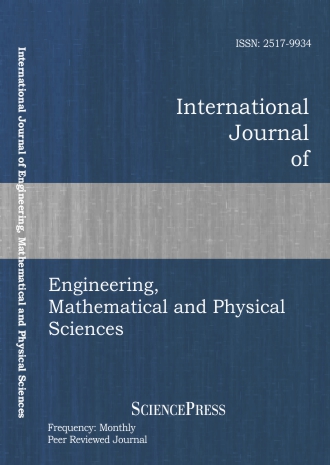
Scholarly
Volume:5, Issue: 11, 2011 Page No: 1700 - 1703
International Journal of Engineering, Mathematical and Physical Sciences
ISSN: 2517-9934
1467 Downloads
Control of the Thermal Evaporation of Organic Semiconductors via Exact Linearization
In this article, a high vacuum system for the evaporation of organic semiconductors is introduced and a mathematical model is given. Based on the exact input output linearization a deposition rate controller is designed and tested with different evaporation materials.
Authors:
References:
[1] S. Pratontep, M. Brinkmann, F. N¨uesch, L. Zuppiroli, Correlated Growth